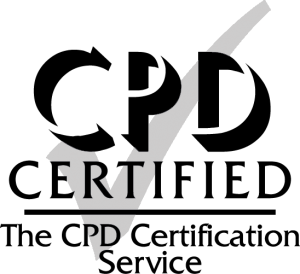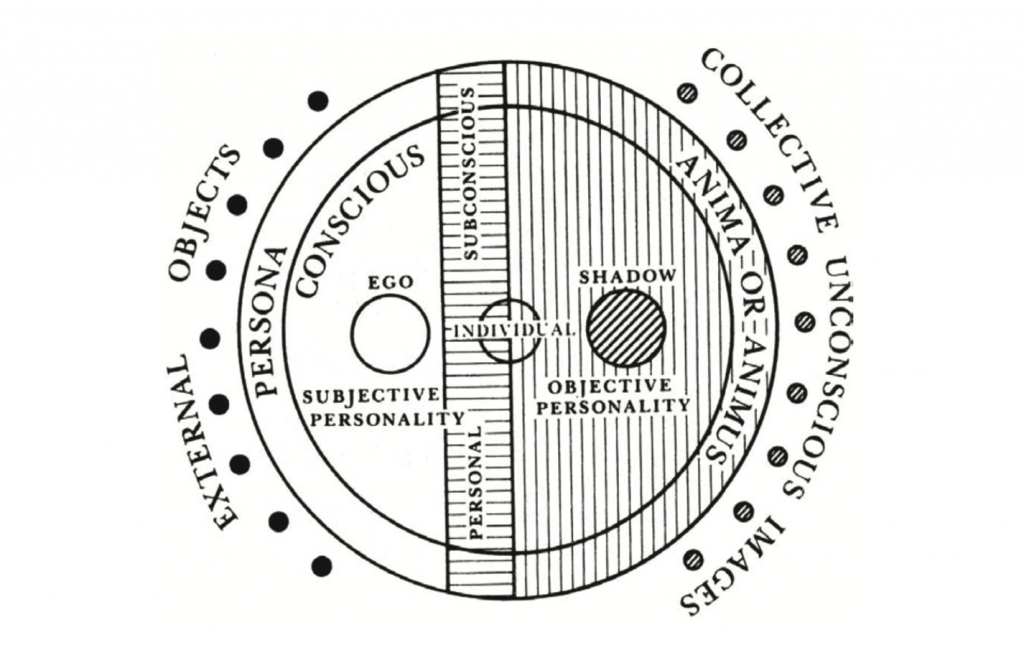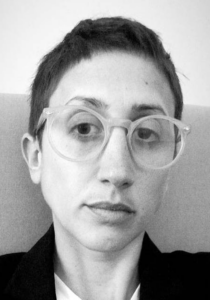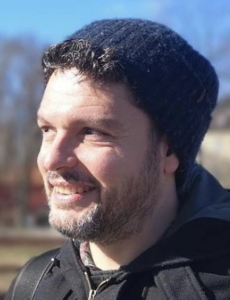JUNGIAN & POST-JUNGIAN
CLINICAL CONCEPTS
presents
The Other
Online certificate course on key concepts of Jungian theory and clinical application.
This course is aimed at psychotherapists, psychologists, counsellors, social workers, coaches, and those working in the mental health and wellness field, wishing to understand the fundamentals of Jungian and post-Jungian psychology in clinical practice. This is a unique focused and in-depth learning opportunity in Jungian and post-Jungian theory and clinical application, with a global faculty of senior Jungian clinicians and academics.

THE OTHER
Imagination, body and gender in Jungian and Post-Jungian Theory
4 January 2025 – Valeria Kierbel
Is Jung Queer?
18 January 2025 – George Taxidis
Container-contained: Thinking with Jung about the adult couple relationship
1 February 2025 – David Hewison
Cultural Complexes in the Life of Individuals, Groups and Nation States
15 February 2025 – Tom Singer
Closing Peer Discussion Group
22 February, 2025
PLEASE NOTE
This online course is aimed students from all over the world, those working with human relations, welfare, emotional growth and development and spiritual directions. Specifically at those in the psychotherapeutic field: clinicians, psychotherapists, social workers, counsellors and psychologists, wishing to either be introduced to or deepen their existing knowledge of Jungian psychology.
NB. The course is not a formal training or accreditation as a Jungian analyst. It is offered as continuing professional development for practising psychotherapists. In terms of the number of CEUs offered for the course, you will need to check with your local accreditation body.
For the full syllabus, module descriptions and faculty information see below.
COURSE OVERVIEW
Course Starts January 2025
The Other – January and February 2025
These modules include:
* Access to ‘Jung Unplugged’ – a comprehensive lexicon of Jungian Concepts.
* A 2-hour webinar with the course presenter, a formal lecture and an extended Q&A. These webinars are presented live and recorded for those unable to make the live webinar.
* Essential reading, set by the module presenter and made available as part of the programme reading pack.
* A self-reflective application for each module.
*Access to a student site to download the learning material,
and complete your questionnaires.
* Closing Forum After Final Module, to share questions and discuss concepts explored with peers in the international student body.
Course process per module:
* Access and download your reading pack for the Semester.
* Live lecture that is recorded for students who cannot attend.
* Work through Applications provided to deepen you personal experience and understanding of the module content.
* Complete a 15 question multiple choice questionnaire – Only required should you wish to receive CPD- Continuing Professional Development Points/ CEU – Continuing Education Units.
The course fee includes:
* Webinars
* Course materials
* Access to the student forum
Time requirement:
You will need a total of six to eight hours per month. All studying can be done in your own time, with the exception of the webinar, which happens at a fixed time – once a month on a Saturday. The webinar is also recorded, should you be unable to make the live broadcast.
 Accreditation:
Accreditation:
This course is certified with 28 CPD’s.
The psychotherapist is not just working for this particular patient, but for himself as well and his own soul, and in so doing he is perhaps laying an infinitesimal grain in the scales of humanity’s soul. Small and invisible as this contribution may be, it is yet an opus magnum.
(Carl Gustav Jung)
ETHOS
The Centre for Applied Jungian Studies exists to promote the research, learning and dissemination of depth psychology and studies, with a focus on Jungian psychology, in a non-linear, non-traditional, fashion. Utilising disruptive technologies the Centre delivers the concepts and applications, developed within the framework of depth psychology, to a wider audience than has historically been given access to these ideas and tools. This approach reflects the global paradigm shift to learning being made more widely and democratically accessible. This is facilitated in part by the non-localisation opportunities for learning created by the WWW, and the radical evolution and sophistication of communication platforms over the last two decades. This aspiration maintains the highest regard for the value and integrity of depth psychological theory and practice. It acknowledges the debt owed to the pioneers of depth psychology and their legacy, as well as the tireless work of the clinicians and scholars who have furthered the field of study over the last century.
The Centre for Applied Jungian Studies is committed to excellence in research, teaching and practice.
‘Jungian and post-Jungian Clinical Concepts’ was inspired by the challenge presented by the Jungian scholars and clinicians at the ‘Spectre of the Other in Jungian Psychology,’ an International Association of Jungian Studies conference that took place in Cape Town in 2017. Where, the urgent need to reach those previously excluded from the teaching and ideas of Jungian psychology, be it for reasons of location, economics or historical prejudices, was unequivocally sounded. In its own modest way, this course sets out to achieve that. By virtue of offering top-class tuition in Jungian psychotherapy, outside of its traditional setting, being non-localised (online), and a tiered fee structure, the aim is explicitly to democratise the learning opportunities offered by Jungian psychology, broaden the reach of these tools and to be as inclusive as possible.

REGISTRATION
Registration will close midnight (PST) 4 April 2025.
First world fees: U$1000 single payment (save U$200) or U$300 per Semester.
(North America, Western Europe, Australasia, Japan)
Developing world and training analysts: U$670 (save U$130) or U$200 per semester, this is 33% reduction on the first world price.
(Latin-America including Mexico, Eastern Europe, rest of Asia, Africa)
Should you have any queries, please email anja@appliedjung.com for more information.
* Please note accreditation only applicable to students who complete all four Semesters.
Registration is now closed.
The next intake in 2025.
For more information email anja@appliedjung.com.
Jungian and Post-Jungian Clinical concepts Enquiry
Enter your details if you want to be contacted when this course opens for intake.
PROGRAM FACULTY
Valeria Kierbel
 Valeria Kierbel holds a Degree in Psychology and Psychology Teaching at the National University of La Plata (UNLP/ Argentina) and is a Clinical Psychologist since 2011. She is a training candidate at SUAPA/IAAP (Uruguayan-Argentinean Society of Analytical Psychology) for Jungian Analyst and Founding member of the activist collective Lesbianas Junguianas and Fuga Magazine along with colleagues Andy Arocha (Uruguay), Fran Ruggiero (Perú) and Carolina Guíñez (Chile). Valeria teaches Historia de la psicología y del psicoanálisis en Argentina” [“History of Psychology and Psychoanalysis in Argentina”] at the University of La Plata since 2010; and “Género y sexualidad en la psicología junguiana” [“Gender and sexualities in Jungian psychology”] at de University of Córdoba, Post-graduate certificate in Jungian Psychotherapy since 2020. She is a teacher of the online updating course on Jungian Psychology “Géneros, sexos y feminismos: la psicología junguiana interceptada” [“Genders, bodies, feminisms: Analytical Psychology Intercepted”], since 2020. This course is carried out along with Carolina Guíñez (author of the book Ser lesbiana, un camino de individuación [Being a Lesbian, a path of individuation], RIL ed.).
Valeria Kierbel holds a Degree in Psychology and Psychology Teaching at the National University of La Plata (UNLP/ Argentina) and is a Clinical Psychologist since 2011. She is a training candidate at SUAPA/IAAP (Uruguayan-Argentinean Society of Analytical Psychology) for Jungian Analyst and Founding member of the activist collective Lesbianas Junguianas and Fuga Magazine along with colleagues Andy Arocha (Uruguay), Fran Ruggiero (Perú) and Carolina Guíñez (Chile). Valeria teaches Historia de la psicología y del psicoanálisis en Argentina” [“History of Psychology and Psychoanalysis in Argentina”] at the University of La Plata since 2010; and “Género y sexualidad en la psicología junguiana” [“Gender and sexualities in Jungian psychology”] at de University of Córdoba, Post-graduate certificate in Jungian Psychotherapy since 2020. She is a teacher of the online updating course on Jungian Psychology “Géneros, sexos y feminismos: la psicología junguiana interceptada” [“Genders, bodies, feminisms: Analytical Psychology Intercepted”], since 2020. This course is carried out along with Carolina Guíñez (author of the book Ser lesbiana, un camino de individuación [Being a Lesbian, a path of individuation], RIL ed.).
George Taxidis
 George Taxidis is a Jungian analyst in private practice in east London, UK and a lecturer in psychotherapy and psychosocial studies at Goldsmiths, University of London. He was the co-founder of the International Queer Jungian Initiative, and is currently writing a book on queering Jungian psychology for the Routledge series Jung, Politics and Culture.
George Taxidis is a Jungian analyst in private practice in east London, UK and a lecturer in psychotherapy and psychosocial studies at Goldsmiths, University of London. He was the co-founder of the International Queer Jungian Initiative, and is currently writing a book on queering Jungian psychology for the Routledge series Jung, Politics and Culture.
David Hewison
 Dr David Hewison is a Jungian Training Analyst from the Society of Analytical Psychology in London, UK. He holds a Doctorate in Couple Psychoanalytic Psychotherapy and has recently retired from Tavistock Relationships after 26 years of work. A Consultant Couple Psychoanalytic Psychotherapist and psychotherapy researcher, he developed and led a research-based post-qualifying doctoral programme in Couple Psychotherapy as well as running and teaching on the organisation’s 4-year clinical training in Couple Psychoanalytic Psychotherapy. He developed a model of couple therapy that is used in the UK National Health Service as a treatment for depression and has published many papers on couple and individual psychoanalysis and Jungian analysis, with a particular interest in creativity. He teaches and lectures internationally and has a part-time private practice of clinical work and supervision.
Dr David Hewison is a Jungian Training Analyst from the Society of Analytical Psychology in London, UK. He holds a Doctorate in Couple Psychoanalytic Psychotherapy and has recently retired from Tavistock Relationships after 26 years of work. A Consultant Couple Psychoanalytic Psychotherapist and psychotherapy researcher, he developed and led a research-based post-qualifying doctoral programme in Couple Psychotherapy as well as running and teaching on the organisation’s 4-year clinical training in Couple Psychoanalytic Psychotherapy. He developed a model of couple therapy that is used in the UK National Health Service as a treatment for depression and has published many papers on couple and individual psychoanalysis and Jungian analysis, with a particular interest in creativity. He teaches and lectures internationally and has a part-time private practice of clinical work and supervision.
Tom Singer
Thomas Singer, MD is a psychiatrist and Jungian psychoanalyst who trained at Yale Medical School, Dartmouth Medical School, and the C.G. Jung Institute of San Francisco. He is the author and editor of many articles and books, including a series of books on cultural complexes in Australia, Latin America, Europe, Southeast Asia, and the United States. Cultural Complexes and the Soul of America won the IAJS award for Best Edited Book of 2020. In addition, Dr. Singer has co-edited a series of books on Ancient Greece/Modern Psyche. He serves on the Board of ARAS (Archive for Research into Archetypal Symbolism) and has edited ARAS Connections for many years.)
TESTIMONIALS
It’s time for module 11 of my Jungian and Post Jungian clinical concepts course. This one is about dreams and active imagination. The course started in May of last year and has been both fascinating and brilliant. The course ends in May with the final module on the Political Pdyche by Professor Andrew Samuel’s. What a year its been . I couldn’t recommend the Centre for Applied Jungian Studies more highly.
Martyn Shrewsbury
Thank you for such a wonderful opportunity to hear all the lecturers! You picked up the best! I am the president of Russian Society for Analytical Psychology and attended this course with an idea to compare the level of education we give in Russia with the international. I’m really satisfied with what I got with your course. Thank you again for this wonderful experience! And good luck to you and the centre!
Natalia Pavlikova (Russia)
Really enjoyed the course. The course content and webinars were demanding but appeared to be of the highest quality. Feel I am bit wiser now.
Tony Reilly (UK)
It has been a wonderful experience. Thank you all for each month of knowledge and incredible insights .
Susana Munaux (Mexico)
I would like to thank you for setting up and running this online course. It has been a wonderful learning opportunity and really enjoyed delving deep into Jungian psychology. it was great to learn from the best authors and practitioners worldwide. It definitely added much value to my practice as coach and career counsellor.
Anne Robert (Mauritius)
A warm and grateful “THANK YOU” for your work, to all Professor and teacher. I had much pleasure deepening my understanding of Jungian thoughts.
Denis Casarsa (Koh Samui)
I have really enjoyed the course and valued the quality of the seminar presentations. I have had an opportunity to extend and deepen my understanding. Thank you to all involved .
Sally Dhruev (UK)
This course was a deeply enriching experience for me.
Valeria Almada (Mexico)
This course was truly rich and I benefited greatly from it. It had really good material and lecturers, and I loved how they covered so many different aspects of such work.
Carli Castellani (US)
I don’t think I would of had access to this wealth of information by experts from around the world if it had not been for this opportunity. I have been interested in Jungian analysis and would like to peruse it but it’s really challenging finding the right route. I feel inspired and have all this knowledge from the course.
Thanks again not only for the contents but making it affordable and available online!
Stacey Coconas (South Africa)
Thank you very much and Congrats to CAJS for the wonderful course.
Juliana Navarro (Rio de Janeiro)
Thank you so much Anja- it’s been a brilliant course- very enjoyable, stimulating and informative.
Linda-Mary Edwards (UK)
Thanks again for putting together such an interesting course that really informs about key concepts of Jungian thought from a contemporary perspective.
Catriona MacInnes


